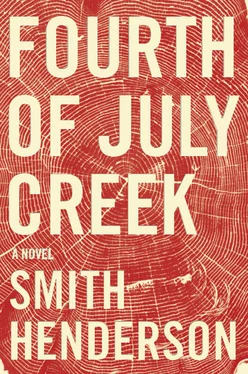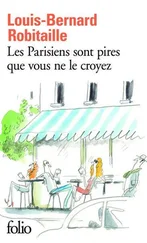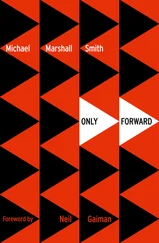“A new investor class,” Pearl continued. “New ways of buying low and selling high. Paper fortunes. Betting essentially — and then bubbles and crashes.”
The boy remained in the tent.
“Are you following me?”
He had failed to kill before. Maybe Pearl had insisted his son try again.
“Mr. Snow?”
“Yes, I’m following you.”
“The Tulpenwode was such a bubble and crash,” Pearl said. “ Tulpen is Dutch for tulip. And wode … wode is mania.”
“Mania. Yes,” Pete said, absently.
“Now the tulip at this time was a new flower in Europe. Very popular. It should’ve been a harmless fad, but because of the Tulpenwode, it remains to this day a symbol of Holland.
“Now this flower had a virus, which expressed itself by streaking the petals with ribbons of color. Tiger stripes and flames. The Dutch classified them with a passion, gave them names like ‘Viceroy’ and ‘Semper Augustus.’ And these infected tulips needed careful cultivation. This only intensified the sense of their preciousness.
“Almost overnight, the growers who tended these flowers were charged exorbitantly for the bulbs. And this gave way to the second cause of the Tulpenwode: the speculative Dutch market.”
The boy exited the tent in an oversize peacoat that he’d buttoned incorrectly. His hands tucked in the pockets.
“Contracts were drawn up to protect the growers with a set price,” Pearl lectured, “defending them against rapid changes in the market. A ‘futures’ contract. And as the prices of the bulbs continued to rise, a surprising thing happened: the contracts themselves became commodities. As the prices for the contracts ballooned, the price of the flowers ballooned, and vice versa. Just imagine that. For the first time, the price of an object — a vanity at that — was sheer enthusiasm.”
“Enthusiasm,” Pete repeated, watching the boy.
“Perfectly sane people traded their horses and sheep for bulbs of the rarer varieties. Goods in excess of several tons — cheese, a bull, beer — were traded for a single Viceroy bulb. For a time, the tulip replaced the florin as the national currency. This was a fuckin wode .”
“A wode ,” Pete said.
The boy sneezed, startling him.
“Bless you,” Pearl said.
The boy wiped his nose with his sleeve, and then set both empty hands on his lap.
He picked his nose.
“Then one day,” Pearl carried on, “it was as if everyone found their sense in a dresser or hanging from a nail in the barn. The tulip became just a flower again. The prices plummeted. Whole families were ruined, generations of wealth squandered on nearly worthless contracts for sick flowers.”
The boy didn’t have a pistol.
“So your coins,” Pete said, “they’re like this… tulip mania?”
Pearl didn’t reply or move. The boy now unbuttoned the coat to fix it.
“The pawnbroker says people pay good cash for some of your coins,” Pete said. “He told me that there are collectors everywhere. That they have almost become another money. He says you’re a genius. That you’re up to something major.”
Pearl grinned and nodded sagely.
“I am the kakangelist.”
“I don’t know what that is.”
“The bringer of bad tidings. The bad word.”
“So your coins are a warning.”
“The coins are a whimper when what is needed is a full-throated cry. We are in a different situation altogether now. The Lord has set me over nations that I might root out and pull down and destroy. I believe the pawnbroker is right. I will be associated with something incredible. My only fear is that one day I might be thought of as holy.”
It alarmed Pete to realize that the boy was standing. He’d been drawn in by Pearl’s inchoate charisma, his madman charm. Now the child was afoot and off into the woods.
Pete tried to silently rise to his feet.
“Are you going somewhere?” Pearl asked.
“I’m just stretching my legs,” Pete said. “Where did Ben go?”
“He’s only a boy. A boy you’ve come to aid,” Pearl said. “You aren’t afraid of us, are you? Us poor, backward people who need your assistance?”
“I didn’t say that. I don’t think it.”
“Your presence here presumes it.”
“No. I came to help. That’s all. I know you’re not people to mess with.”
“Ah,” Pearl said. “The man in the ash. Yes?”
The boy was behind Pete in the dark. He turned and peered into the trees, but could not see through the cedar and larch.
“Yes?” Pearl asked again.
“Yes,” Pete whispered.
“The Lord needs us to be sharp,” Pearl said.
The boy blithely stepped through the ferns and into the firelight, dropped an armful of firewood, and went back into the woods. Pearl’s clouded eyes were half-opened, regarding Pete or his shape. He sat back down.
“You thought it was the end of the world,” Pete said.
“Of this world.”
“But it wasn’t. Your wife. What did she think?”
“Of what?”
“Of everything… Where is she?”
The blind man gestured vaguely, his arm up and behind his ear, as if to say they were deeper in the mountains and many miles away.
“With the other children?”
“Yes. She is with the other children.”
“She’s alive.”
“Yes.”
The boy returned with more wood.
“It will be like that,” Pearl said.
“What will?”
“The end. Fire, smoke, blood.”
Pearl rubbed his temples. Pete asked if he was in pain again. The man did not say.
“I see your instrumentality now,” Pearl said. “God is inscrutable and I don’t know the end game, but He has made it clear that you are involved now.”
“Okay. Does your wife need anything? The other children, are they—?”
Pearl said he needed news. On the way west, he said, they’d read about the assassination of Aldo Moro by the Red Brigade. He said that Revelations 13:3 predicted the Antichrist would survive a deadly wound. That he would yet rise to lead armies against God. He said he had a list of possible Antichrists. He said these were some of the things he needed to know.
The boy fed the fire, grinning pleasantly at Pete, oblivious to what all had been said. Or, more likely, absolutely accustomed to it.
Again the elevator operator told Pete that Mary wasn’t in and wouldn’t let him up. Pete smoked in the theater lobby, watching through the glass doors for someone to come down the stairs — residents on the first few floors didn’t bother with the elevator and the cranky Charon who operated it — but no one came down. He bought a ticket to a matinee and went up into the balcony. The movie let out and he made like he was waiting in the second-floor lobby for someone in the bathroom. A few teenage truants left the theater and an attendant came to clean. Near the top of the stairs was an open janitor’s closet and next to it a locked door. Pete could see the apartment building’s hallway through the little window in the door.
“You lock yourself out?”
The janitor was already sorting through his keys.
“Yeah, I was just… Yes.”
The janitor gave him a peculiar look.
“You here to see Iris.”
“Uh, yes.”
The janitor found the key but he didn’t open the door. He looked about and then rubbed the fingers of his free hand against his thumb. Pete gave him a ten.
“You tip the box office?”
“I didn’t—”
“Tell Iris. She’ll take care of it. Come back out this way. Don’t use the elevator.”
So there was a whore and the elevator attendant didn’t like it or had been told by the building owner to do something about it. Pete climbed a flight of stairs. Curious as to which door was hers. Wondered would there be trouble when the guy in the box office didn’t get his tip. He had half a mind to go down there and tip the man himself just to not queer any of their business.
Читать дальше












